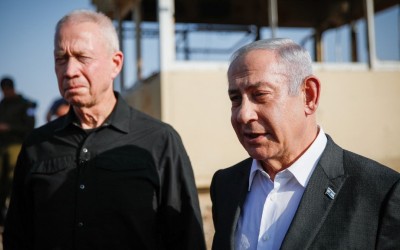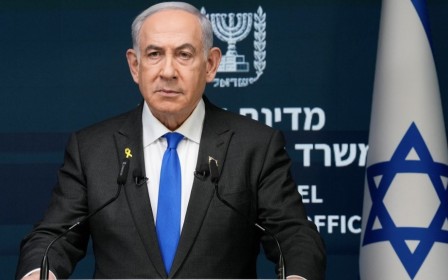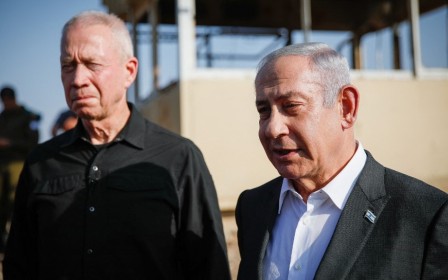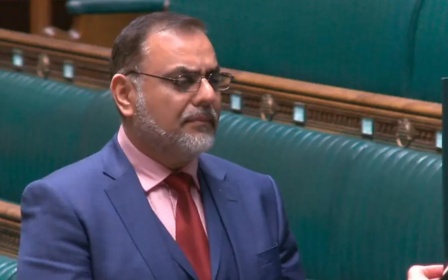UK refuses to confirm if it gave Israeli military chief special immunity on visit this week
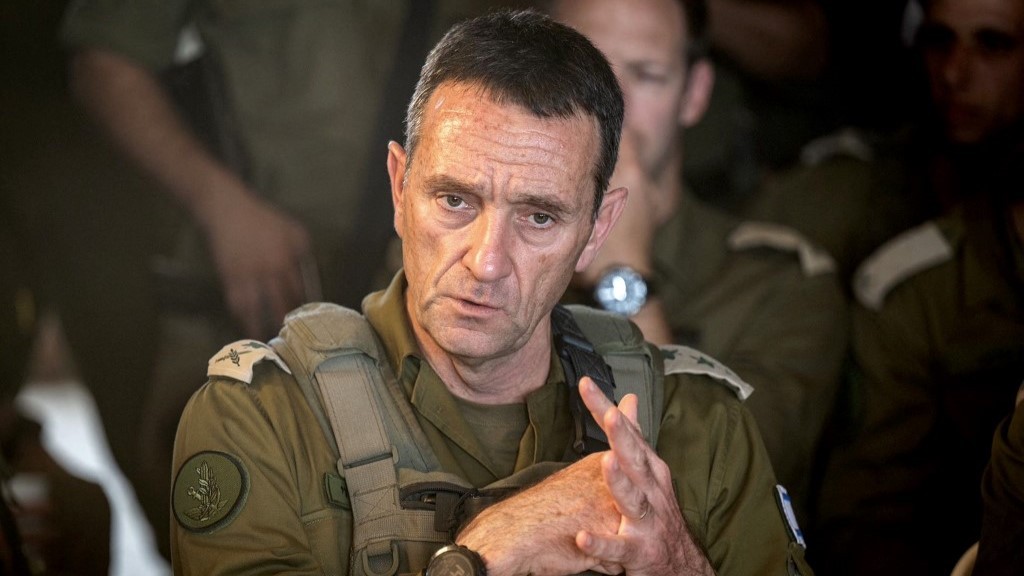
Britain has refused to confirm whether it gave Israel's military chief of staff, Herzi Halevi, special mission immunity when it hosted him last week.
Halevi's visit came amid speculation that the International Criminal Court (ICC) could issue an arrest warrant for him over human rights violations in Gaza.
The military chief visited Britain just days after the ICC issued arrest warrants for Israeli Prime Minister Benjamin Netanyahu and former defence minister Yoav Gallant for alleged war crimes.
Last Friday, the British government said it would comply with its obligations under domestic and international law if Netanyahu set foot on British soil.
But on Monday, Haveli flew to Britain to meet military chiefs from a number of countries.
New MEE newsletter: Jerusalem Dispatch
Sign up to get the latest insights and analysis on Israel-Palestine, alongside Turkey Unpacked and other MEE newsletters
Halevi was previously reported to have been included in the ICC's arrest applications, alongside Netanyahu and former defence minister Yoav Gallant.
No arrest warrant for the military chief has been made public, but Israeli media has reported that the Israeli government fears an arrest warrant could be issued unannounced for Halevi, following the warrants already issued.
Halevi reportedly arrived in Britain on Monday afternoon and left shortly after midnight.
The Ministry of Defence (MoD) said: "As part of the concerted UK effort, along with allies and partners, to reach a peaceful resolution to the ongoing conflicts in Lebanon and Gaza, the Chief of the Defence Staff hosted his counterparts from Israel and other European partners.
"Discussions included the UK calls for an immediate ceasefire in both Lebanon and Gaza and the need for all parties to comply with international humanitarian law while recognising Israel’s right to security."
Special mission immunity
Middle East Eye asked the MoD whether the UK granted Halevi special mission immunity for his visit, but the MoD did not respond to that question.
MEE also asked the Foreign Office what due diligence was exercised ahead of his visit, considering that Israel's prime minister is wanted for alleged war crimes.
The Foreign Office declined to comment.
MEE further asked whether the Foreign Office is aware of any arrest warrant having been issued for Halevi, or of any criminal investigations into him - again receiving no response.
Since 2013, the Foreign Office has granted special mission immunity to more than 50 military and political figures from several countries, according to reporting by Declassified UK.
The foreign secretary at the time, William Hague, said: "We cannot have a position where Israeli politicians feel they cannot visit this country."
Netanyahu was given mission immunity when he visited Britain in 2015. So was Herzi Halevi himself, when he was Israel's military intelligence chief.
In 2001, Tony Blair's Labour government passed the ICC Act, which enforces compliance with the court.
There is a domestic legal process through which Britain's independent courts determine whether to endorse the warrant in accordance with the 2001 act.
Middle East Eye delivers independent and unrivalled coverage and analysis of the Middle East, North Africa and beyond. To learn more about republishing this content and the associated fees, please fill out this form. More about MEE can be found here.


